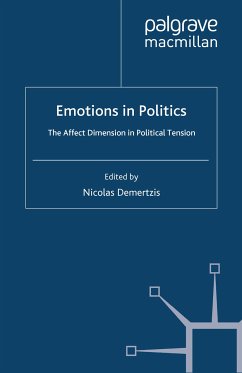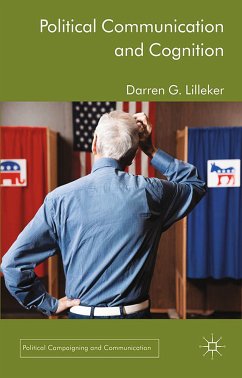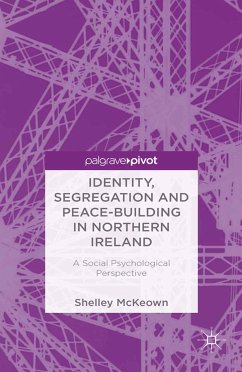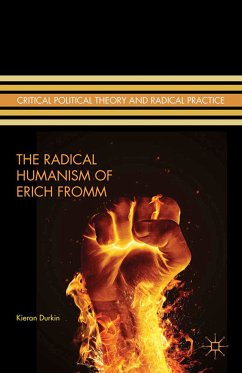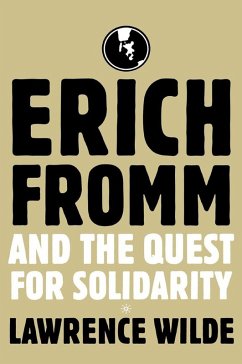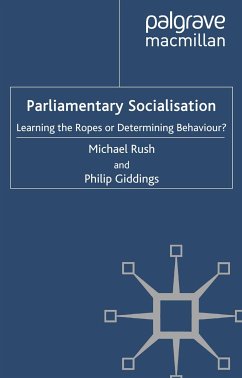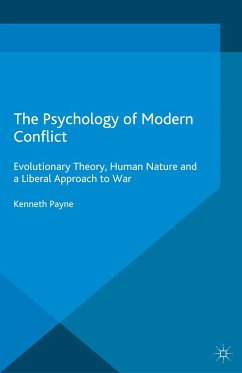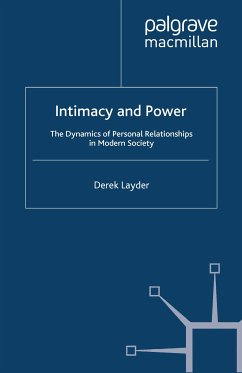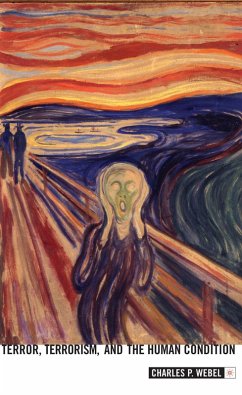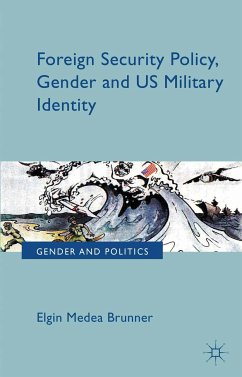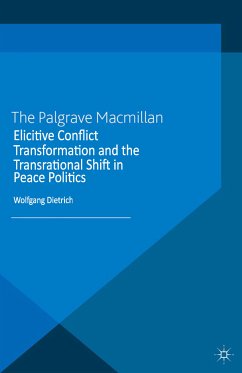
W. Dietrich
eBook, PDF
Elicitive Conflict Transformation and the Transrational Shift in Peace Politics (eBook, PDF)

PAYBACK Punkte
20 °P sammeln!






This book considers elicitive conflict transformation and its interrelation with humanistic psychology. It discusses the transrational turn in the fields of diplomacy, military, development cooperation and political economy, presenting a new model of conflict analysis with practical implications for peace work.
Dieser Download kann aus rechtlichen Gründen nur mit Rechnungsadresse in A, B, BG, CY, CZ, D, DK, EW, E, FIN, F, GR, HR, H, IRL, I, LT, L, LR, M, NL, PL, P, R, S, SLO, SK ausgeliefert werden.
Wolfgang Dietrich holds the UNESCO Chair for Peace Studies at the University of Innsbruck, Austria. He is program director of the MA Program for Peace, Development, Security and International Conflict Transformation. He is a member of the Austrian UNESCO Commission and Visiting Professor at the Institute for Political Science at the University of Vienna, at the Centre for Peace and Development Studies at the University of Castellón, Spain, the United Nation's Peace University in Ciudad Colón, Costa Rica and the World Peace Academy in Basel, Switzerland.
Produktdetails
- Verlag: Palgrave Macmillan UK
- Seitenzahl: 273
- Erscheinungstermin: 29. Juli 2013
- Englisch
- ISBN-13: 9781137035066
- Artikelnr.: 39450635
"The concept of an 'elicitive' approach to conflict transformation addresses the relevance of new and old psycho-spiritual methods to Peace Studies, and is coherent with the increasingly popular endorsement of Gandhi's injunction to be the change we want; which may be stated as a belief that what has proven useful for personal transformation also holds the greatest po-tential for social healing and transformation. As one who has devoted a lifetime to the application of some of the resources described in this book to the education of psychotherapists and teachers, I appreciate and celebrate this volume that proposes their use in the education of diplomats, mediators and other peace-builders. I wish that it may contribute to the eventual
Mehr anzeigen
healing and transformation of patriarchal politics into a post patriarchal politics truly dedicated to the furthering of justice, compassion and wisdom in the world." - Claudio Naranjo; MD, Designer of the SAT Program for Personal and Professional Development
"Once in a while a book comes along which transforms the way we understand the field of peace and conflict studies. While such a claim can often be conferred too easily, in the case of this book, the second volume in Wolfgang Dietrich's work on Many Peaces, the description is fully merited. This book is outstanding in its scholarship, brilliant in its erudition, exciting in its range of knowledge, and inspirational in its daring and creative exploration of new fields of theoryand practice. Building on the work of all of the great innovators in peace research, this book marks a huge advance in our ability to understand and respond creatively to the challenges of 21st century conflict." - Tom Woodhouse, University of Bradford, UK
"We live in a remarkable time. Science is coming around full circle and meeting, once again, with what got called mysticism. In his new book, Wolfgang Dietrich weaves together ancient and cutting edge knowledge to present a practical path to individual, community and global peace. He asks us (all of humanity) to embrace the artistry of living; of breathing, communicating, moving, in order for us to understand and 'own' our collective stories and their interrelation to each other in the here and now. This is a ground-breaking book that builds on the work of many and then pushes the boundaries of conflict transformation." - David Diamond, Artistic and Managing Director Theatre for Living (Headlines Theatre) / Vancouver, Canada
"In this remarkable book, Wolfgang Dietrich, one of Europe's eminent peace scholars, interweaves in a creative and insightful way the peace philosophies of the West with a plethora of Eastern and Indigenous epistemes and practices like shamanism, Vipassana, Bud?, and Aikid?. The outcome is an astonishingly rich and unique account of 'Many Peaces'. Dietrich reveals that this diverse and eclectic epistemology forms the basis of the pedagogy of his peace studies program at Innsbruck, Austria and it is no wonder why this program is so highly acclaimed. There is much to learn from here and this is indeed a book that is indispensable to anyone concerned with peace-work or the teaching of peace studies and conflict transformation." - Alberto G. Gomes, La Trobe University, Australia
"Once in a while a book comes along which transforms the way we understand the field of peace and conflict studies. While such a claim can often be conferred too easily, in the case of this book, the second volume in Wolfgang Dietrich's work on Many Peaces, the description is fully merited. This book is outstanding in its scholarship, brilliant in its erudition, exciting in its range of knowledge, and inspirational in its daring and creative exploration of new fields of theoryand practice. Building on the work of all of the great innovators in peace research, this book marks a huge advance in our ability to understand and respond creatively to the challenges of 21st century conflict." - Tom Woodhouse, University of Bradford, UK
"We live in a remarkable time. Science is coming around full circle and meeting, once again, with what got called mysticism. In his new book, Wolfgang Dietrich weaves together ancient and cutting edge knowledge to present a practical path to individual, community and global peace. He asks us (all of humanity) to embrace the artistry of living; of breathing, communicating, moving, in order for us to understand and 'own' our collective stories and their interrelation to each other in the here and now. This is a ground-breaking book that builds on the work of many and then pushes the boundaries of conflict transformation." - David Diamond, Artistic and Managing Director Theatre for Living (Headlines Theatre) / Vancouver, Canada
"In this remarkable book, Wolfgang Dietrich, one of Europe's eminent peace scholars, interweaves in a creative and insightful way the peace philosophies of the West with a plethora of Eastern and Indigenous epistemes and practices like shamanism, Vipassana, Bud?, and Aikid?. The outcome is an astonishingly rich and unique account of 'Many Peaces'. Dietrich reveals that this diverse and eclectic epistemology forms the basis of the pedagogy of his peace studies program at Innsbruck, Austria and it is no wonder why this program is so highly acclaimed. There is much to learn from here and this is indeed a book that is indispensable to anyone concerned with peace-work or the teaching of peace studies and conflict transformation." - Alberto G. Gomes, La Trobe University, Australia
Schließen
Für dieses Produkt wurde noch keine Bewertung abgegeben. Wir würden uns sehr freuen, wenn du die erste Bewertung schreibst!
Eine Bewertung schreiben
Eine Bewertung schreiben
Andere Kunden interessierten sich für


